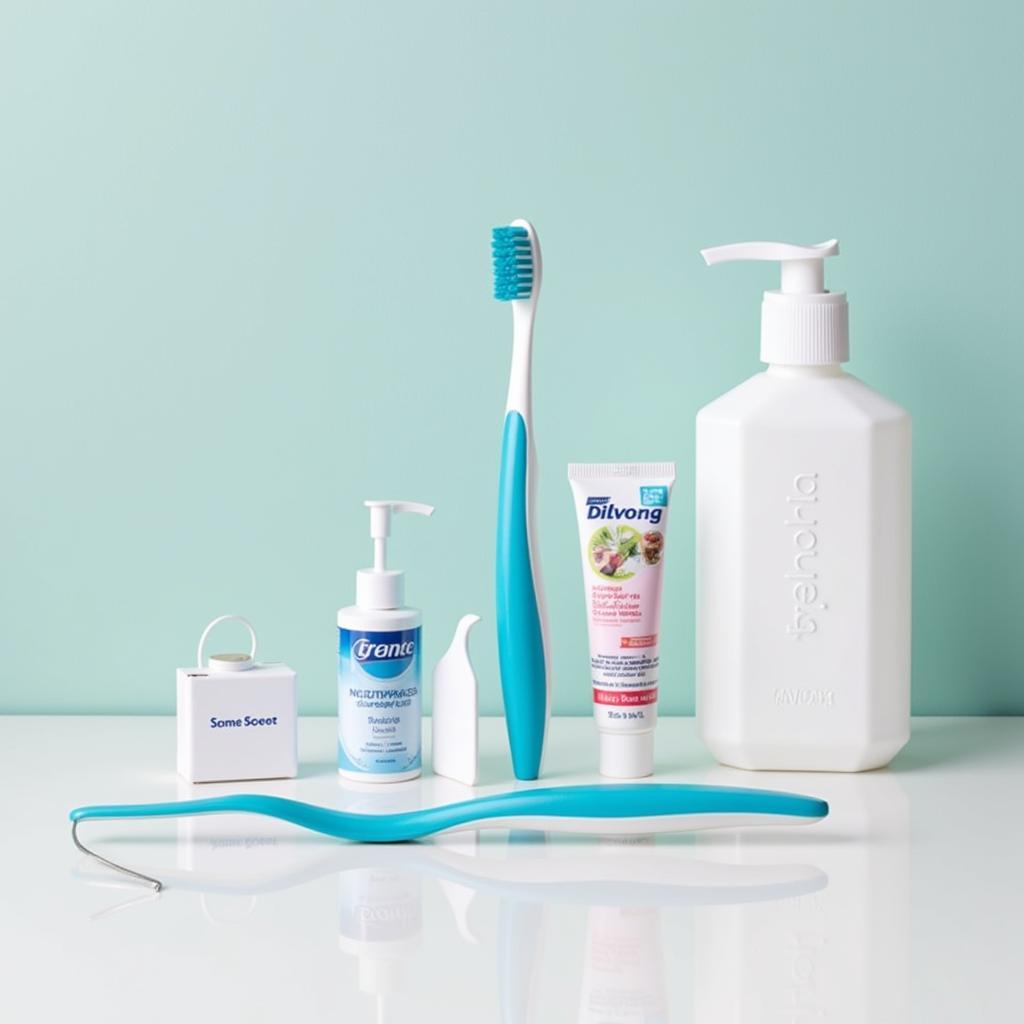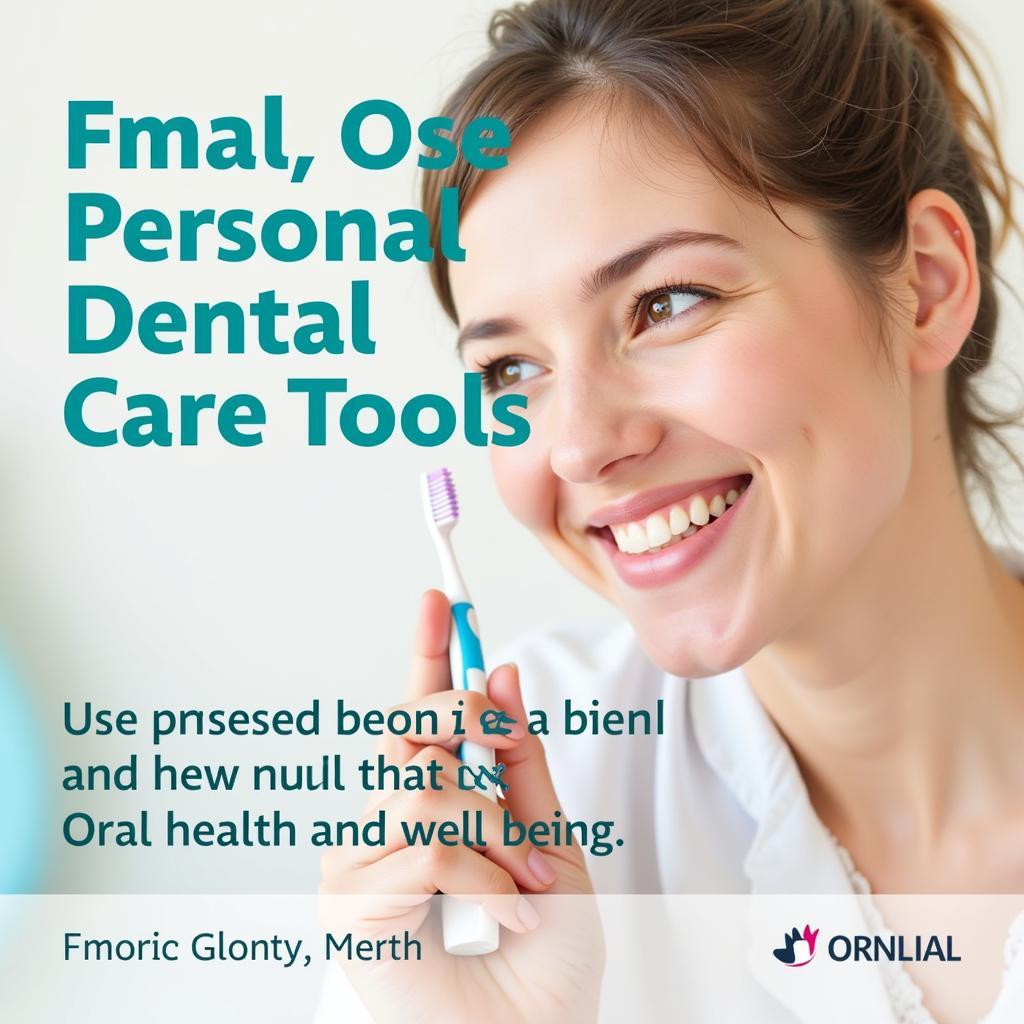Personal Dental Care Tools are essential for maintaining good oral hygiene and preventing dental problems. Taking care of your teeth and gums at home goes beyond just brushing twice a day. It requires the right tools and techniques to effectively remove plaque, prevent cavities, and keep your breath fresh. Let’s explore the essential personal dental care tools you need for a healthy and sparkling smile.
Must-Have Personal Dental Care Tools
A good oral hygiene routine starts with the right tools. Here are the essential personal dental care tools everyone should have:
- Toothbrush: The cornerstone of any dental care routine. Choose a soft-bristled toothbrush that fits comfortably in your mouth. Consider an electric toothbrush for superior plaque removal.
- Toothpaste: Select a toothpaste containing fluoride to strengthen enamel and protect against cavities. Look for options with whitening properties or sensitivity relief if needed.
- Dental Floss: Essential for cleaning between teeth where your toothbrush can’t reach. Floss removes food particles and plaque, preventing gum disease and bad breath.
- Mouthwash: Rinsing with mouthwash helps kill bacteria, freshen breath, and reach areas that brushing and flossing might miss. Choose an alcohol-free mouthwash to avoid drying out your mouth.
- Tongue Scraper: Gently scraping your tongue removes bacteria and debris that contribute to bad breath. This simple tool can significantly improve your oral hygiene.
 Essential Personal Dental Care Tools
Essential Personal Dental Care Tools
Advanced Personal Dental Care Tools for Enhanced Cleaning
While the basic tools cover the essentials, incorporating these advanced tools can further elevate your oral hygiene:
- Interdental Brushes: These small brushes are designed to clean between teeth, especially in hard-to-reach areas or around braces and bridges. They are particularly helpful for individuals with larger gaps between their teeth.
- Water Flosser: A water flosser uses a stream of pulsating water to remove food particles and plaque from between teeth and along the gum line. It can be a great alternative to traditional flossing, especially for people with dexterity issues or braces.
- Electric Toothbrush with Specialized Cleaning Modes: Some electric toothbrushes offer specialized cleaning modes for whitening, gum massage, or sensitive teeth, providing a more personalized cleaning experience.
How to Choose the Right Personal Dental Care Tools?
Choosing the right personal dental care tools depends on your individual needs and preferences. Consider factors like your gum health, sensitivity, and any existing dental work. Dental home care tools can provide additional resources and recommendations tailored to your specific needs. Don’t hesitate to consult your dentist for personalized advice on selecting the most appropriate tools for your oral hygiene routine.
What are the benefits of using personal dental care tools?
Using the right personal dental care tools effectively can prevent cavities, gum disease, and bad breath. Regular brushing and flossing are crucial for removing plaque, the sticky film of bacteria that builds up on teeth. Maintaining good oral hygiene contributes to overall health and well-being.
 Benefits of Using Personal Dental Care Tools
Benefits of Using Personal Dental Care Tools
Maintaining Your Personal Dental Care Tools
Just as important as using the right tools is keeping them clean and in good condition. Replace your toothbrush every three months or sooner if the bristles are frayed. Clean your tongue scraper after each use and store it properly. Regularly clean your water flosser reservoir and follow the manufacturer’s instructions for maintenance. You might also consider looking at feet care tools for overall health.
Conclusion
Investing in the right personal dental care tools and establishing a consistent oral hygiene routine is crucial for maintaining a healthy and beautiful smile. By incorporating the essential tools and techniques discussed above, you can significantly improve your oral health and prevent dental problems. Remember, personal dental care is an ongoing commitment, and using the right tools is the first step towards achieving optimal oral health. If you’re dealing with ingrown toenails, you may also want to check out professional nail care tools for ingrown toe.
FAQ
- How often should I replace my toothbrush?
- What type of toothpaste is best for sensitive teeth?
- Is a water flosser better than traditional floss?
- How can I remove stains from my teeth?
- What are the signs of gum disease?
- How often should I visit the dentist for checkups?
- Can personal dental care tools prevent all dental problems?
Situations
- Bleeding gums while brushing or flossing.
- Persistent bad breath despite regular brushing.
- Difficulty reaching certain areas of the mouth with traditional floss.
- Sensitivity to hot or cold foods and drinks.
- Stained or discolored teeth.
Need help with your car? Check out tools needed to change car bsttery or tools to enter car through window.
Need assistance? Contact us via WhatsApp: +1(641)206-8880, Email: [email protected] or visit us at 910 Cedar Lane, Chicago, IL 60605, USA. Our customer support team is available 24/7.

Leave a Reply